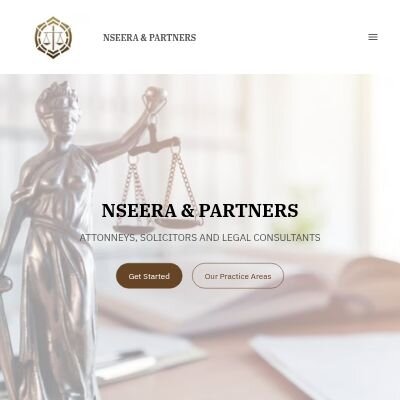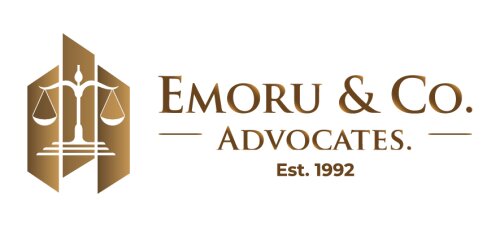Best International Trade Law Lawyers in Kampala
Share your needs with us, get contacted by law firms.
Free. Takes 2 min.
List of the best lawyers in Kampala, Uganda
About International Trade Law in Kampala, Uganda
International Trade Law in Kampala, Uganda, is primarily governed by a combination of local and international regulations aimed at facilitating and regulating trade activities across borders. Uganda, a member of international trade organizations such as the World Trade Organization (WTO) and the East African Community (EAC), implements policies and laws that align with these organizations' directives. In Kampala, the capital city and a major trade hub, businesses engaging in international trade need to adhere to these legal frameworks to ensure compliance and promote smooth trading activities.
Why You May Need a Lawyer
There are several situations where individuals or businesses may require legal assistance in International Trade Law. These include:
- Understanding and negotiating international trade agreements and contracts.
- Complying with import/export regulations and customs procedures.
- Resolving trade disputes with foreign partners or suppliers.
- Navigating tariff classifications and duty calculations.
- Addressing issues related to international shipping and logistics.
- Protecting intellectual property rights internationally.
- Managing risks of non-tariff barriers and trade sanctions.
- Ensuring compliance with international standards and safety regulations.
- Facilitating cross-border investments and financing.
- Handling cases of fraud or breaches of trade agreements.
Local Laws Overview
Several key aspects of local laws in Uganda impact International Trade Law practices in Kampala, including:
- The East African Community Customs Management Act: Governs customs procedures for goods traded within the EAC, ensuring streamlined processes for businesses.
- The Uganda Revenue Authority Act: Empowers the Uganda Revenue Authority (URA) with authority over tax assessments, collections, and all import/export duties.
- The Investment Code Act: Establishes guidelines for foreign investment in Uganda, outlining rights and obligations of international investors.
- The Contracts Act: Provides the legal framework for drafting and enforcing trade contracts within Uganda's jurisdiction.
- The Sale of Goods Act: Regulates the sale and purchase of goods, ensuring fair practices in trading activities.
Frequently Asked Questions
What are the main international trade laws Uganda adheres to?
Uganda follows international trade laws guided by organizations like the World Trade Organization (WTO) and regional frameworks like the East African Community (EAC) protocols.
How does the Uganda Revenue Authority (URA) affect international trade?
The URA administers customs duties, taxes, and enforces compliance with import/export regulations, critical in international trade operations.
What trade-related documents are necessary for importing goods to Uganda?
Key documents include the Bill of Lading, Import Declaration Form, Commercial Invoice, Packing List, Certificate of Origin, and any applicable permits or licenses.
Are there any restrictions on foreign currency usage in trade transactions?
Yes, transactions involving foreign currency are regulated by the Bank of Uganda, ensuring compliance with foreign exchange laws.
What legal recourse is available in the event of a trade dispute?
Trade disputes can be resolved through negotiation, arbitration, or litigation, guided by local courts or international arbitration bodies if applicable.
How can businesses protect intellectual property during international trade?
Registration of patents, trademarks, and copyrights with relevant authorities ensures protection and legal backing in cases of infringement.
What is the process for obtaining an export license?
Businesses must apply to the Uganda Export Promotion Board (UEPB) detailing the goods and compliance with relevant standards and regulations.
Does Uganda offer any trade incentives or tax breaks for international trade?
Uganda provides various incentives, such as tax holidays or exemptions, particularly for trading within the East African Community.
What is the role of the Ministry of Trade, Industry, and Cooperatives?
The Ministry formulates trade policies, promotes exports, and facilitates access to markets, playing a central role in international trade.
How can one ensure compliance with local product standards?
Engaging with the Uganda National Bureau of Standards (UNBS) ensures products meet local and international standards, minimizing compliance risks.
Additional Resources
For anyone seeking more information or assistance with International Trade Law, the following resources are beneficial:
- Uganda Revenue Authority (URA): Oversees taxation, customs laws, and provides guidelines for import/export duties.
- Uganda Export Promotion Board (UEPB): Offers support and guidance for businesses aiming to export goods from Uganda.
- Ministry of Trade, Industry and Cooperatives: Responsible for policy formulation regarding trade and industrial development.
- Uganda National Bureau of Standards (UNBS): Ensures compliance with product standards.
- East African Community (EAC): Provides a regional framework for trade among member countries, including Uganda.
Next Steps
If you need legal assistance in International Trade Law in Kampala, Uganda, consider the following steps:
- Research and Identify Needs: Clearly define the specific legal assistance or advice required related to your trade activities.
- Consult a Qualified Lawyer: Seek lawyers who specialize in International Trade Law within Kampala to provide expert guidance.
- Engage with Relevant Bodies: Contact organizations such as the URA or UEPB to ensure compliance with local trade regulations.
- Consider Alternative Dispute Resolution: For disputes, evaluate options like arbitration or mediation before resorting to litigation.
Taking these steps ensures that you are well-informed and legally secured in your international trade ventures.
Lawzana helps you find the best lawyers and law firms in Kampala through a curated and pre-screened list of qualified legal professionals. Our platform offers rankings and detailed profiles of attorneys and law firms, allowing you to compare based on practice areas, including International Trade Law, experience, and client feedback.
Each profile includes a description of the firm's areas of practice, client reviews, team members and partners, year of establishment, spoken languages, office locations, contact information, social media presence, and any published articles or resources. Most firms on our platform speak English and are experienced in both local and international legal matters.
Get a quote from top-rated law firms in Kampala, Uganda — quickly, securely, and without unnecessary hassle.
Disclaimer:
The information provided on this page is for general informational purposes only and does not constitute legal advice. While we strive to ensure the accuracy and relevance of the content, legal information may change over time, and interpretations of the law can vary. You should always consult with a qualified legal professional for advice specific to your situation.
We disclaim all liability for actions taken or not taken based on the content of this page. If you believe any information is incorrect or outdated, please contact us, and we will review and update it where appropriate.

















